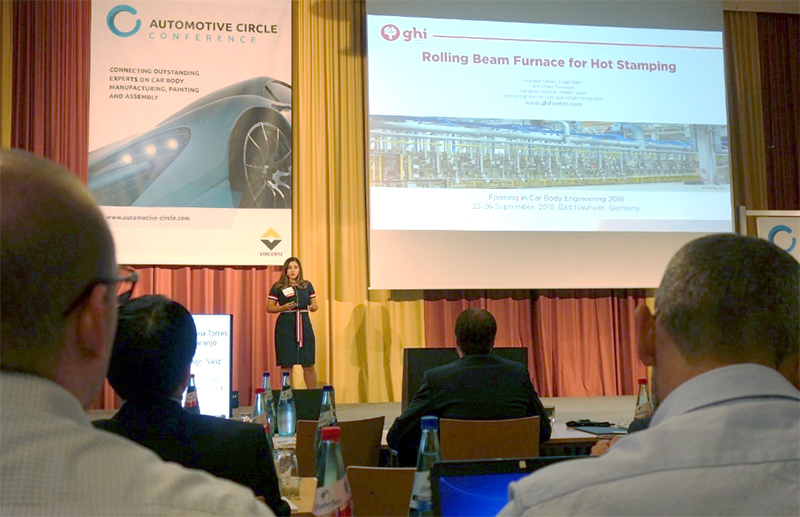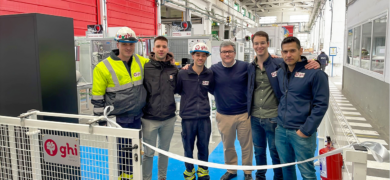GHI Smart Furnaces showcased its advanced technology, the Rolling Beam Furnace for hot stamping, at the “Forming in Car Body Engineering” Conference in Bad Nauheim, Germany, on September 25-26, 2018. This conference is a significant event for international experts in automotive engineering.
Conference Highlights
Adriana Torres, a GHI engineer, presented the innovative Rolling Beam Furnace. She provided valuable insights into its operation and the advantages it offers in the hot stamping process. The presentation was well-received by the attendees, who appreciated the potential of this advanced technology.
The annual conference attracted over 100 participants from leading OEMs and Tier 1 suppliers from various countries. Discussions focused on new developments for more efficient processes and innovative technologies in industrial car body part production.
OnStamp: Advanced Technology for Hot Stamping
GHI’s “OnStamp” equipment for the hot stamping process incorporates advanced technology that addresses the limitations of traditional equipment. This new smart furnace concept combines high productivity with minimal maintenance costs, significantly improving Overall Equipment Effectiveness (OEE).
For more information about the Rolling Beam Furnace or GHI’s other innovative solutions, please contact us at ghi@ghihornos.com.





